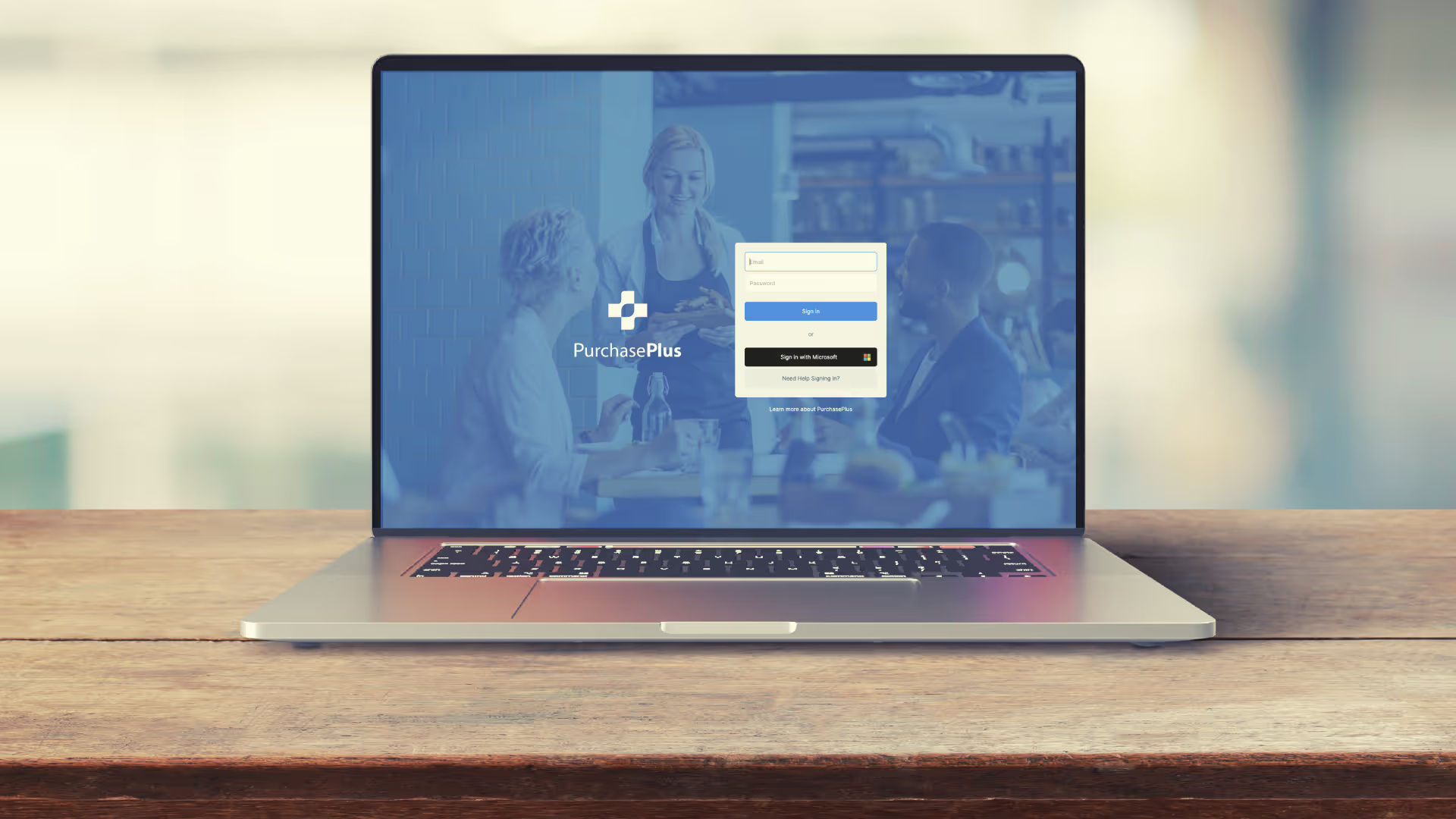Procure-to-Pay

Extreme Weather Causes Cocoa and Coffee Prices to Double and Further Food Price Volatility: Implications for the Hospitality Industry
.png)
5 Reasons Why Hotels Should Jump on the Local Purchasing Trend

Asia-Pacific Hotel Performance: Navigating 2025 with PurchasePlus
.avif)
Boosting Hotel's Restaurant Profitability in 2025

Enhancing Inventory Management in the Food Production Industry: Challenges and Solutions

Enhancing Sustainability in the $9 Trillion Hospitality Food Supply Chain

Hospitality Procurement Trends 2025: What's In and What's Out

Hotel Industry Forecast 2025: Development, Labor, F&B, and More

Hotel Profitability: The Ultimate Guide to Hotel Revenue Management

Navigating the Future: Key Hospitality Trends Shaping 2025

In the dynamic landscape of hospitality, small hotels face unique challenges and opportunities in 2025. The confluence of evolving guest expectations, technological advancements, and a heightened focus on sustainability necessitates innovative and strategic approaches to revenue maximization and cost control. With guests increasingly seeking personalized experiences and sustainable practices, small hotels must leverage technology to enhance supplier relationships and optimize operations to remain competitive. This guide delves into seven proven strategies designed to increase hotel revenue in 2025, with a particular emphasis on how AI-powered procurement, paperless invoicing, and global supplier networks can significantly reduce operational expenses and drive profitability.
What is Hotel Revenue?
Understanding Revenue Streams in Hospitality
Hotel revenue encompasses all income generated from various aspects of the hospitality business. This includes core revenue from room bookings, as well as supplementary income from food and beverage sales, event hosting, spa treatments, and other ancillary offerings. For small hotels, the ability to diversify revenue streams is critical. Reliance on room bookings alone can lead to significant revenue fluctuations, particularly during off-peak seasons. By strategically expanding service offerings and optimizing operational efficiency, small hotels can achieve greater financial stability and long-term success. Industry data indicates that hotels with diversified revenue streams experience a 15-20% increase in overall profitability compared to those that rely solely on room bookings.
1. Implementing Dynamic Pricing Strategies
Real-Time Pricing Adjustments for Maximum Profitability
Dynamic pricing, a strategy that adjusts room rates in real-time based on fluctuating demand, competitor pricing, and seasonal trends, is essential for maximizing revenue. AI-powered pricing tools play a crucial role in this process, enabling hotels to optimize revenue per available room (RevPAR) by accurately predicting market fluctuations and adjusting prices accordingly. These tools analyze vast datasets, including historical booking patterns, competitor rates, and local event calendars, to ensure hotels remain competitive while capturing peak demand periods at premium rates. Studies reveal that hotels implementing effective dynamic pricing strategies can see an average increase of 10-15% in RevPAR. For example, during local festivals or major events, hotels can leverage dynamic pricing to capitalize on increased demand, ensuring maximum profitability.
2. Optimizing Room Occupancy
Strategies to Improve Room Occupancy Rates
Maintaining high occupancy rates is vital for hotel profitability. Beyond offering discounted rates, strategic initiatives such as exclusive discounts for direct bookings, partnerships with corporate travel managers, and targeted last-minute and long-stay promotions can significantly boost occupancy. Leveraging guest data analytics allows hotels to predict demand patterns, tailor marketing efforts, and personalize guest experiences. For example, offering personalized packages to returning guests based on their previous preferences can enhance loyalty and drive repeat bookings. Additionally, hotels can utilize online travel agencies (OTAs) strategically, ensuring a balanced approach to direct bookings and OTA partnerships to maximize reach and minimize commission costs. Industry reports indicate that hotels with strong occupancy management strategies can achieve occupancy rates 5-10% higher than their competitors.
3. Upselling and Cross-Selling Services
Enhancing Food and Beverage Upselling Opportunities
Food and beverage (F&B) services represent a significant revenue stream for small hotels. Maximizing guest spending on dining experiences can substantially enhance profit margins. Strategies to boost F&B revenue include creating prepaid meal plans for guests at check-in, promoting in-room dining with premium service offerings, and encouraging upsells on wine pairings and exclusive dishes. For instance, offering a tasting menu featuring local wines and seasonal ingredients can attract discerning guests and increase average spending per meal. Expanding Revenue Through Spa and Wellness Services. Beyond dining, hotels can upsell spa treatments, wellness retreats, and personalized fitness sessions to enhance guest experiences and increase spending. Offering curated wellness packages that include spa treatments, yoga sessions, and healthy meal options can attract guests seeking a holistic experience. Data shows that effective upselling and cross-selling can increase average guest spending by 15-25%.
4. Developing Ancillary Revenue Streams
Expanding Revenue Through Events and Catering
Diversifying revenue streams is crucial for small hotels. Leveraging hotel spaces for corporate events, weddings, and private parties can generate substantial income. Offering catering services for businesses and external clients further expands revenue opportunities. Exclusive cooking classes, wine tastings, and chef’s table experiences can also attract guests and enhance brand visibility. For example, hosting themed culinary events featuring local chefs and ingredients can create unique experiences that attract both hotel guests and local residents. These services not only generate additional revenue but also enhance brand visibility and create new opportunities beyond room bookings.
5. Reducing Operational Costs
How Smart Procurement Lowers Costs
Cost reduction is as critical as revenue generation. Procurement is often an overlooked area where hotels can achieve significant savings. Bulk ordering optimization reduces costs on F&B and housekeeping supplies, while AI-driven procurement minimizes overstocking and food waste. Supplier price tracking ensures hotels secure the best deals on inventory. Implementing automated procurement systems streamlines costs without compromising service quality. For example, consolidating orders from multiple suppliers into a single purchase can lead to volume discounts and reduced shipping costs. Industry benchmarks indicate that efficient procurement practices can reduce operational costs by 5-10%.
6. Leveraging Digital Transformation for Procurement Efficiency
The Role of AI in Digital Procurement Efficiency
Many hotels still rely on manual purchasing systems, leading to inefficiencies, pricing inconsistencies, and wasted resources. Digital procurement solutions offer real-time supplier pricing comparisons, automated order tracking and replenishment, and error-free invoicing and financial reporting. AI-powered tools analyze supplier performance, predict demand fluctuations, and automate routine tasks, ensuring optimal efficiency. A modern procurement system enhances cost control, supplier transparency, and inventory accuracy. For instance, automated invoice processing reduces manual errors and accelerates payment cycles, improving cash flow. Implementing a digital procurement system can lead to a 20-30% reduction in procurement cycle time and a 10-15% reduction in procurement costs.
7. Embracing Sustainability for Long-Term Profitability
Sustainable Sourcing and Green Initiatives
Eco-conscious travelers increasingly seek hotels with sustainable practices. Green initiatives not only reduce operational costs but also enhance brand reputation. Sourcing from local and sustainable suppliers reduces carbon footprint, implementing energy-efficient solutions lowers utility bills, and eliminating single-use plastics and paper waste minimizes environmental impact. Hotels investing in sustainable procurement and eco-friendly vendor partnerships create long-term profitability while appealing to modern guests. For example, installing solar panels and implementing water conservation measures can significantly reduce utility costs. Additionally, offering guests the option to offset their carbon footprint through donations to environmental projects can enhance brand loyalty. Studies show that hotels with strong sustainability practices can attract a premium of 5-10% from eco-conscious travelers.
How PurchasePlus Transforms Hotel Revenue and Sustainability
AI-Powered Procurement, Paperless Invoicing, and Global Supplier Marketplace
Many small hotels struggle with inefficient procurement and outdated invoicing systems that drive up costs and reduce profit margins. PurchasePlus addresses these challenges with AI-powered procurement, automatically selecting cost-effective suppliers based on real-time pricing and preventing overstocking and food waste with intelligent demand forecasting. The global supplier marketplace connects hotels with top-tier suppliers worldwide, providing access to high-quality, sustainable products. Digital purchase orders and paperless invoicing eliminate manual paperwork, reducing errors, fraud, and administrative expenses, while supporting eco-friendly business goals. Enhanced cost control and vendor management features track supplier price changes and order history, ensuring contract compliance and cost transparency. By adopting PurchasePlus, hotels improve operational efficiency, lower costs, and support sustainability initiatives, enhancing guest experiences and profitability.
Conclusion
Increasing hotel revenue in 2025 requires a strategic blend of pricing optimization, upselling, operational efficiency, and sustainable procurement. With AI-powered procurement, digital invoicing, and access to global suppliers, PurchasePlus empowers small hotels to cut costs, increase revenue, and operate more sustainably, all through a smarter procurement approach. By implementing these strategies, small hotels can navigate the complexities of the modern hospitality industry and achieve sustainable growth.